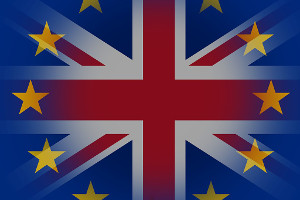The United Kingdom a key piece of the European insurance market
 In addition to that, community instruments have been designed to govern jurisdictional powers, execution of deeds and international contracts. Most likely, the United Kingdom would cease being member in the European Union by the end of 2019 or 2020.
In addition to that, community instruments have been designed to govern jurisdictional powers, execution of deeds and international contracts. Most likely, the United Kingdom would cease being member in the European Union by the end of 2019 or 2020.
Despite several extended talks and the pressure from the British citizens, departure of the United Kingdom without any agreement on the horizon remains on the agenda, especially with the possible arrival in power of Boris Johnson, advocate of the tough Brexit. This kind of departure is dreaded by business environment, especially that English MPs are not intent on “backstop” free divorce and that the possibility of a referendum or of new legislative elections cannot be ruled out.
It is in this political turmoil that the players on the insurance market across the Channel, firmly opposed to any Brexit, are bringing the final touches to its restructuring.
Read also | Lloyd’s in light of the Brexit
The United Kingdom's place in European insurance
The United Kingdom and its capital city London hold a fundamental position in the European insurance sector. In 2017, 23.4% of the 1213 billion EUR (1 453 billion USD) of the gross premiums written on the market of the European Union, were made in the United Kingdom, that is, approximately 284 billion EUR (340 billion USD).
The United Kingdom, so far, is the first European market ahead of France which accounts for 211.6 billion EUR in premiums (253 billion USD), that is 17.4%, and Germany 198 billion EUR (237 billion USD), that is 16%. It is noteworthy that the United Kingdom is also ranking fourth on the global insurance market behind the United States, China and Japan.
Nearly 3400 insurers are active on the market of the European Union, a figure that includes domestic insurance companies certified in the Union and those operating in Europe but not originating from one of the Union’s States. All of these companies are directly hiring 945 000 staff, excluding outsourced jobs and independent intermediaries.
 In 2017, 1209 insurance companies were authorized to underwrite in the United Kingdom, 337 of which in the life business and 872 in the non-life sector. Among these companies, 769 are benefiting from the European financial passport (178 in the life insurance and 591 in non-life). Companies endowed with a European passport are employing nearly 303 500 wage earners in the United Kingdom with one third directly employed in the insurance business and the remaining two thirds operating in related services.
In 2017, 1209 insurance companies were authorized to underwrite in the United Kingdom, 337 of which in the life business and 872 in the non-life sector. Among these companies, 769 are benefiting from the European financial passport (178 in the life insurance and 591 in non-life). Companies endowed with a European passport are employing nearly 303 500 wage earners in the United Kingdom with one third directly employed in the insurance business and the remaining two thirds operating in related services.
Today, thanks to its insurance operations, the United Kingdom is reporting a trade surplus of approximately 18 billion GBP (22.8 billion USD). Insurance has also enabled authorities across the Channel to receive 12 billion GBP (15 billion USD) in taxes. Investment managed by insurers account for about 25% of the British net wealth.
To discover | UK insurance market
UK insurers and the stalled political negotiations
Most British insurers are pointing fingers to delays and disrupted talks with Brussels. These delays are blamed for the state of economic instability and legal uncertainty that cast their shadow on their activities, seriously compromising their business.
United Kingdom’s exit process from the Union is poised to last for a long time, which is likely to prompt British companies, insurers in particular, to consider worse case scenarios, i.e., a tough exit. This shift will compel British insurance companies to innovate in order to cushion the fallout of this rough Brexit. Furthermore, interrupted talks with Brussels have added to the concerns and fears of British insurers who are now forced to handle a challenging situation.
A survey conducted by A.M. Best, published in mid-March commended, nevertheless, the good level of preparedness of insurers who are supported by governmental and regulatory measures introduced on both shores of the Channel. The Bank of England has indeed confirmed that European and British regulators will remain inter-connected irrespective of the outcome of political talks. This cooperation will remain in place even in case London quits the European Union without any transitional agreement.
Collaboration shall pertain to modes of implementing political decisions and information exchange between British and European regulators. On the British side, “the Financial Conduct Authority” announced last December the establishment of a special plan applicable to contracts of financial services. The latter shall enable financial companies, including insurance ones, to continue to honor their contractual obligations if they are holders of a license from their countries of origin. This will enable them to transfer property, rights or obligations by virtue of preexistent contract. They will no longer, however, accept new contracts as of March 29, 2019.
The United Kingdom has also decided to apply the Temporary Permissions Regime so as to enable European insurers, operating across the Channel, to continue meeting their obligations during a three-year period following Brexit’s entry into force.
Read also | Lloyd’s: Results 2018
